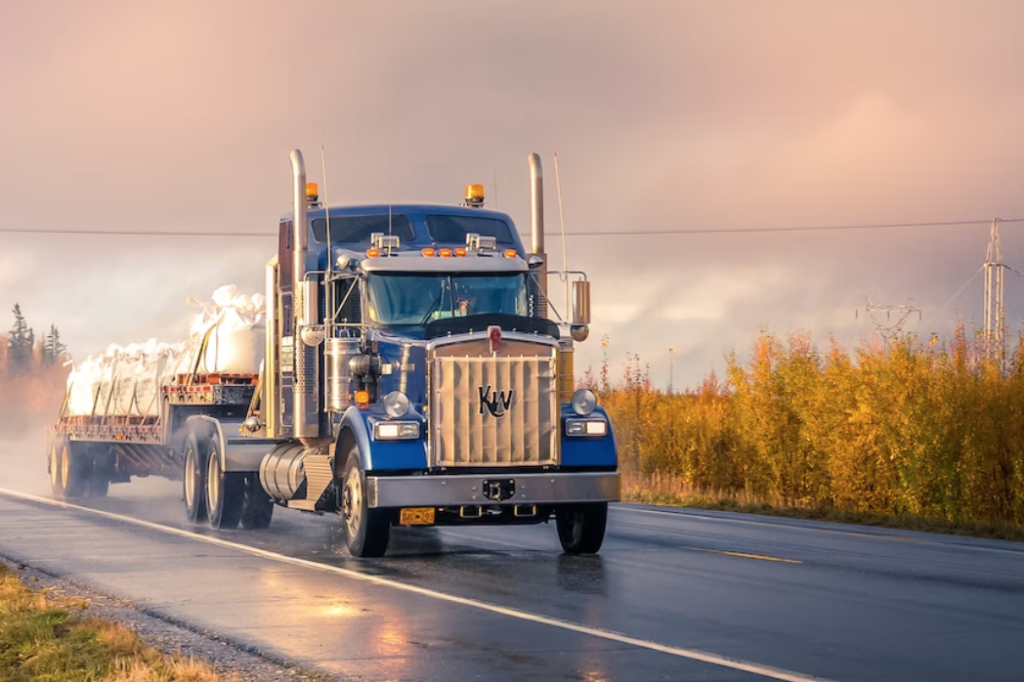In the world of commerce and trade, the backbone of the global supply chain is often overlooked despite its monumental significance: commercial truck companies. These enterprises play a pivotal role in ensuring that goods and commodities traverse vast distances, seamlessly bridging the gap between manufacturers, distributors, and consumers. The functioning of modern economies relies heavily on the efficiency and effectiveness of these commercial truck companies.

The Crucial Functions of Commercial Truck Companies
At the heart of every successful business lies a well-oiled logistical network, and commercial truck companies serve as the linchpin. These companies are responsible for transporting goods from production facilities to distribution centers and retail outlets, thereby enabling the smooth flow of products across diverse markets.
They are also responsible if any accident were to happen on the road. When facing legal battles arising from truck accidents, enlisting the support of experienced truck injury lawyers can make a significant difference in securing the rightful compensation for victims and their families. And, by offering an expansive and well-connected fleet, these companies facilitate timely deliveries that meet consumer demand, maintain inventory levels, and ensure just-in-time supply chain management.
Challenges on the Road: Navigating Hurdles in the Industry
While commercial truck companies play a vital role in global trade, they grapple with an array of challenges that can impede their operations. Rising fuel costs, ever-evolving regulatory standards, driver shortages, and maintenance complexities are just a few of the hurdles that these companies face daily. Moreover, traffic congestion, adverse weather conditions, and the demand for sustainable practices further compound these challenges. Navigating through these obstacles requires innovative solutions and strategic planning to maintain operational excellence.
- Rising Fuel Costs: The unpredictable nature of global oil markets contributes to the volatility of fuel prices, impacting operational expenses significantly. Fluctuating fuel costs can strain profit margins and necessitate constant adjustments to pricing strategies and efficiency measures.
- Ever-Evolving Regulatory Standards: Compliance with a complex web of local, national, and international regulations is a perpetual challenge. Adapting to new emission standards, safety protocols, and transportation regulations demands a proactive approach, involving regular training and investment in technology to ensure adherence.
- Driver Shortages: The shortage of qualified and experienced truck drivers is a persistent issue. As older drivers retire and fewer newcomers enter the profession, companies struggle to meet the demand for transport services. Offering competitive compensation packages, better working conditions, and advanced training programs are strategies employed to attract and retain skilled drivers.
- Maintenance Complexities: The sheer scale and complexity of commercial truck fleets present ongoing maintenance challenges. Ensuring that vehicles are in optimal working condition while managing maintenance schedules, repairs, and replacements demands meticulous planning. Technological solutions such as predictive maintenance can help mitigate downtime and reduce maintenance costs.
Innovations Shaping the Industry’s Landscape
The commercial trucking industry’s evolution is intrinsically tied to technological advancements that have the potential to redefine its landscape. Route optimization software, powered by sophisticated algorithms and real-time data, is reimagining how truck companies plan and execute their journeys.
This not only results in more efficient routes and reduced fuel consumption but also minimizes the time trucks spend on the road, translating into cost savings and fewer carbon emissions. Real-time tracking systems provide transparency to customers and stakeholders, enabling them to monitor the progress of their shipments accurately.
- The introduction of autonomous vehicles is poised to be a game-changer for the industry. While fully autonomous trucks might still be on the horizon, the development of semi-autonomous features is already making waves. Advanced driver assistance systems (ADAS) enhance safety on the road by assisting drivers in navigating challenging conditions, maintaining safe distances, and avoiding collisions.
- This technology has the potential to address the ongoing driver shortage by augmenting the capabilities of human drivers. As autonomous technology matures, the industry stands at the cusp of a transformative shift that could reshape the role of truck drivers and the overall efficiency of commercial truck companies.
Balancing Technology with Human Expertise
While technological innovations are reshaping the commercial trucking industry, the human element remains an indispensable aspect. Skilled truck drivers, dispatchers, mechanics, and logistics professionals are the backbone of these companies. The integration of technology does not seek to replace human expertise but rather enhance it.
Autonomous vehicles, for example, still require human oversight, especially in complex situations that demand human judgment and decision-making. The industry’s future success lies in striking the right balance between harnessing technology to optimize operations and valuing the expertise of its workforce. Embracing a harmonious blend of human ingenuity and technological prowess will be vital to the industry’s ongoing growth.
Looking Ahead: Future Prospects and Trends
The road ahead for commercial truck companies is marked by both challenges and promising prospects. The integration of artificial intelligence (AI) and big data analytics is set to revolutionize fleet management. By harnessing the power of AI, companies can analyze vast amounts of data to optimize routes, predict maintenance needs, and streamline operations. Predictive maintenance, in particular, can significantly reduce downtime and increase the lifespan of trucks, thereby enhancing operational efficiency and reducing costs.
- In addition to technological advancements, the industry is embracing sustainability as a driving force for change. Electric and hydrogen fuel cell trucks are emerging as alternatives to traditional diesel-powered vehicles.
- As governments and organizations worldwide intensify their focus on environmental concerns, the transition to cleaner and more sustainable transportation options will be a crucial factor in shaping the industry’s future.
- Innovative transportation models, such as platooning (where multiple trucks autonomously follow a lead vehicle), can improve fuel efficiency and reduce congestion, offering a glimpse into the future of interconnected and efficient logistics networks.

The industry’s ability to adapt to technological changes, navigate challenges, and embrace sustainability underscores its resilience and determination to remain at the forefront of modern business operations. With innovations like route optimization software, autonomous vehicles, and a commitment to sustainability, commercial truck companies are poised to shape a future where seamless logistics, reduced environmental impact, and enhanced efficiency converge. As consumers and businesses continue to rely on the timely delivery of goods, these unsung heroes will continue to traverse the highways and byways, ensuring that economies keep moving forward.






